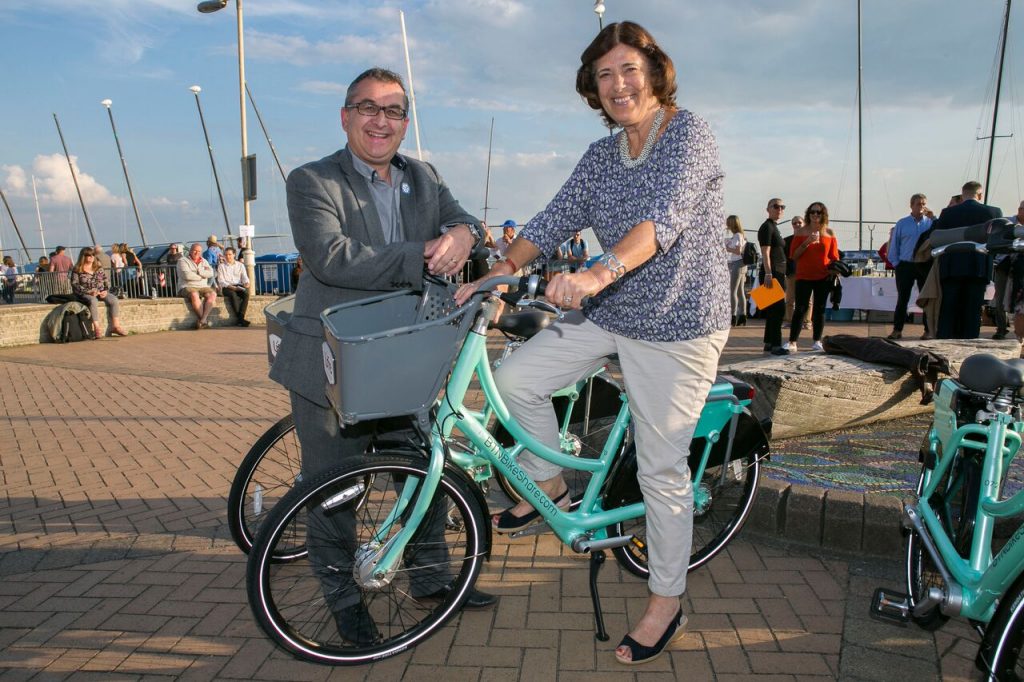A bike share scheme that was meant to generate money for Brighton and Hove City Council could end up saddling taxpayers with a hefty bill.
That appears to be the suggestion from two official reports – one secret – and a letter from a councillor raising a series of serious questions.
The operator Hourbike ran up debts to the council and looks like being stuck without crucial financial sponsorship.
The business case for the project suggested sponsorship would bring in almost £200,000 a year but the actual figures are concealed in the secret report to councillors.
And to add to the council’s woes, Uber, the controversial cab business, took over the scheme’s bike supplier and appears to have welched on an important deal. As a result, the council looks like being an extra £30,000 out of pocket.
The council has also agreed to the use of “older diesel vehicles” to support the scheme. This is despite adopting a target of becoming “carbon-neutral” by 2030.
The diesel vehicles are being used to collect and redistribute the light blue hire bikes even though the operator was supposed to use more environmentally friendly electric vehicles.
On the plus side, two neighbouring councils have expressed an interest in joining the bike share scheme although there are “contract” issues to be overcome.
Officials hope that this may mean it is less likely to run up a loss or fail in the future as has happened in other parts of the country.
The key criticisms are contained in a letter from Conservative councillor Lee Wares to council chief executive Geoff Raw.
The letter is included in the agenda papers for a meeting of the council’s Environment, Transport and Sustainability Committee at Hove Town Hall next Tuesday (17 March).
Councillor Wares said: “It is clear (and reinforced in the report) that the original business case was flawed. Costs were underestimated and revenue overstated.
“The scheme relies on sponsorship to supplement revenue from customers. The ability for the scheme to succeed also appears to rely on subsidies and grants to acquire capital infrastructure without borrowing costs.

“The council ordered and paid for electric-ready bikes. During the contract, the supplier was acquired by Uber who subsequently would not supply the electric conversion kits.
“The council has now received e-ready bikes that cannot be electrified but, in the process, paid circa £30,000 more than had standard bikes been purchased.
“Please confirm what action is being taken to either force Uber to supply the conversion kits the council has paid for or recover the overpaid £30,000.”
Councillor Wares said that he had asked a number of questions about the scheme which, despite promises, had yet to be answered.
He said: “It was disappointing when Labour refused to answer questions at committee about Bikeshare but incredibly frustrating when the answer you do get says the issue will be dealt with in a future report only for that report, when produced, not to address your questions.
“Eventually, the information will be obtained even if ‘freedom of Information’ legislation has to be used.
“To make matters worse, Labour have put a whole lot of information regarding Bikeshare into ‘part 2’ (confidential) papers for the committee that will specifically exclude the public and press.
“A huge amount of taxpayer money has been invested in Bikeshare, so there should be no reason why the public is excluded from knowing how their money is spent. Labour clearly think differently.”
The report to be discussed in public next Tuesday said that demand forecasts underpinning the business case had been too optimistic.
The report said: “Demand was calculated for residents, rail users, employees and tourists and predicted at 5.6 trips per bike per day.
“This has subsequently proved unrealistic across many UK schemes. Actual demand averages just over two trips per bike per day across the year, with peak season usage going as high as four trips per bike per day.
“This demand forecast had an impact on hire revenue forecasts in the business case, which were therefore higher than actual hire revenue income proved to be.

“A surplus was achieved in 2018-19, the first full year of operation (but) while the service can generate a surplus, the actual costs of running the operation are higher than the assumptions made in this business model.
“Costs of attrition of the fleet (weathering factors, wear and tear, losses, servicing and refurbishment costs) also need to be reintroduced.”
Councillors are being asked to agree an action plan which includes plugging the gap in sponsorship funding, extending Hourbike’s contract to run the scheme for a year and preparing a further report on who should run the scheme from next year.
The committee is due to meet at 4pm on Tuesday. The meeting is held in public but is likely to go into closed session to discuss some of the financial and commercial aspects of the scheme.








